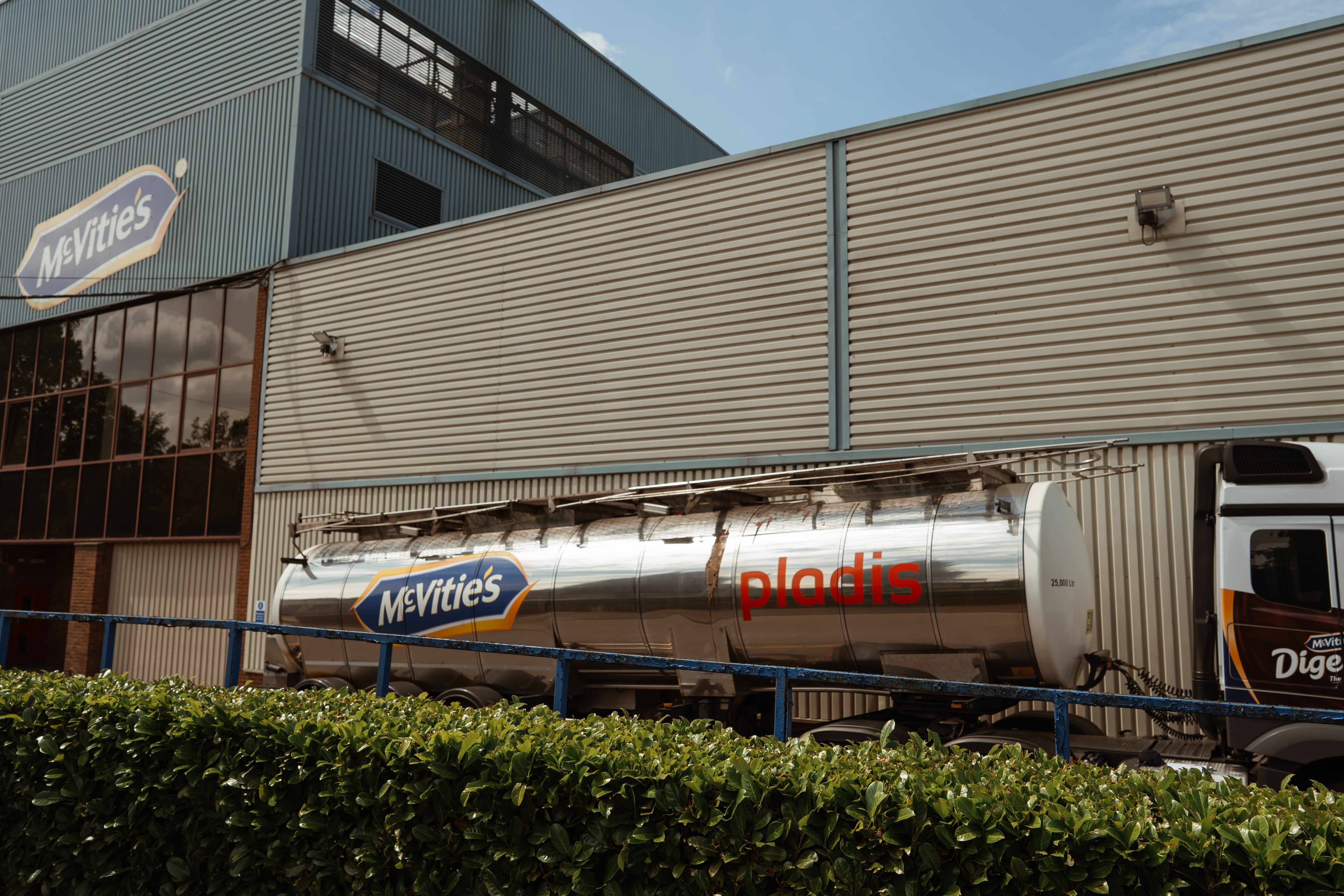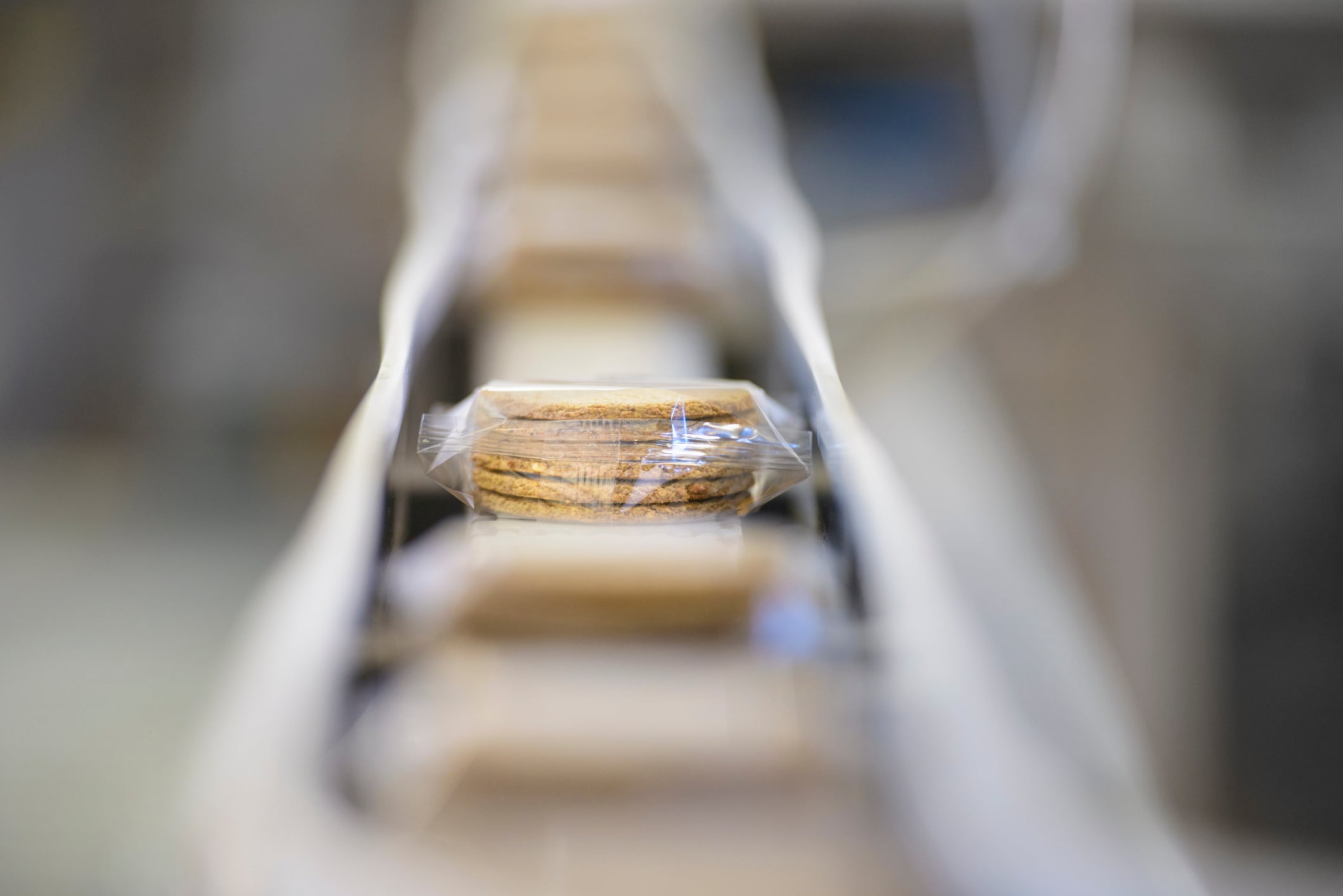This is a move aimed not just at increasing capacity, but at rethinking how some of Britain’s best-known biscuit brands are made, scaled and sustained in a fast-changing market.
The UK biscuit category – worth over £3 billion – is long established but under mounting pressure. Costs remain high, consumer preferences are evolving and own label continues to nibble away at branded share. Even stalwarts like McVitie’s and Jacob’s can’t afford to stand still. With this investment, pladis is clearly looking to protect its leading position – not only by producing more, but by producing smarter and with greater flexibility.
A large part of the spend is focused on the North West of England. In Stockport, £21 million is being directed into a new chocolate moulding line at the McVitie’s factory, complete with robotic technology. Over in Aintree, the Jacob’s Cream Crackers site is getting a £33 million overhaul, including new ovens and infrastructure improvements. In Carlisle, which houses the world’s oldest operating biscuit factory, £2 million will be used to expand the savoury assortments department and create 48 new jobs. Another £12 million is earmarked for upgrades at sites in Harlesden, Halifax and Leicester.
This is a substantial commitment. pladis is making a clear statement about the future of UK manufacturing, backing its British brands with long-term investment at a time when confidence across the sector remains mixed. The company estimates its UK operations already contribute around £240 million annually to the North West economy. This round of upgrades should only deepen that impact.
Building in flexibility and future capacity

Much of the focus is on technology. The chocolate moulding line in Stockport isn’t just a piece of new kit. It reflects a broader transition towards higher-tech, more responsive production. Robotics and smart lines make it easier to adapt to fast-changing market demands, whether that’s seasonal product runs, portion-controlled formats or reformulated recipes aligned with consumer health trends.
There’s also an environmental upside. pladis expects its UK-wide upgrades will cut around 876 tonnes of carbon emissions per year – the equivalent of taking approximately 440 petrol cars off the road. Thatmay not be headline-grabbing in climate terms but it’s a relevant signal to both retailers and consumers that operational growth and sustainability can go hand in hand.
One exception to the automation trend is Carlisle. Rather than scaling back, pladis is expanding its workforce at the historic site.
The 48 new roles being created there show that investment in technology doesn’t always mean fewer jobs. In an industry grappling with skills shortages and labour retention, that’s a notable decision.
Raising the bar

The investment sets a new benchmark for the sector. As pladis upgrades its production capabilities, competitors may need to assess whether their own operations are keeping pace, particularly in areas like automation, flexibility and sustainability. For smaller or mid-sized manufacturers, replicating this scale of investment could prove challenging, potentially sharpening existing cost pressures or prompting strategic reviews.
There’s also an opportunity on the international front. pladis already exports nearly 10 million packets of McVitie’s Chocolate Digestives annually to around 50 markets. With expanded capacity and more efficient production, the company will be well positioned to grow its export footprint and respond more dynamically to overseas demand. That capability could prove valuable as the UK food sector seeks to expand its global reach.
Futureproofing heritage brands

Perhaps most importantly, this investment opens the door to innovation. New lines and refurbished sites offer more flexibility to trial new products and respond to evolving shopper habits. Whether that’s protein-enriched options, plant-based formats or new packaging configurations, the ability to test, tweak and scale is increasingly critical.
This matters especially for long-standing brands. McVitie’s, for example, has sold over 5.8 billion packets of Chocolate Digestives in the past century but history alone won’t keep shoppers coming back. In today’s biscuit aisle, heritage needs to be matched with relevance. That means building brands that are not just familiar, but future-fit.
pladis expects the investment rollout to be completed by the end of 2026. If all goes to plan, the business will emerge with upgraded sites, improved sustainability credentials and greater capacity for both core ranges and new product development. For the UK biscuit market, this could prove to be more than just a manufacturing milestone. It could be a turning point – one that sets a new pace for where and how Britain’s best-loved biscuits are made.


